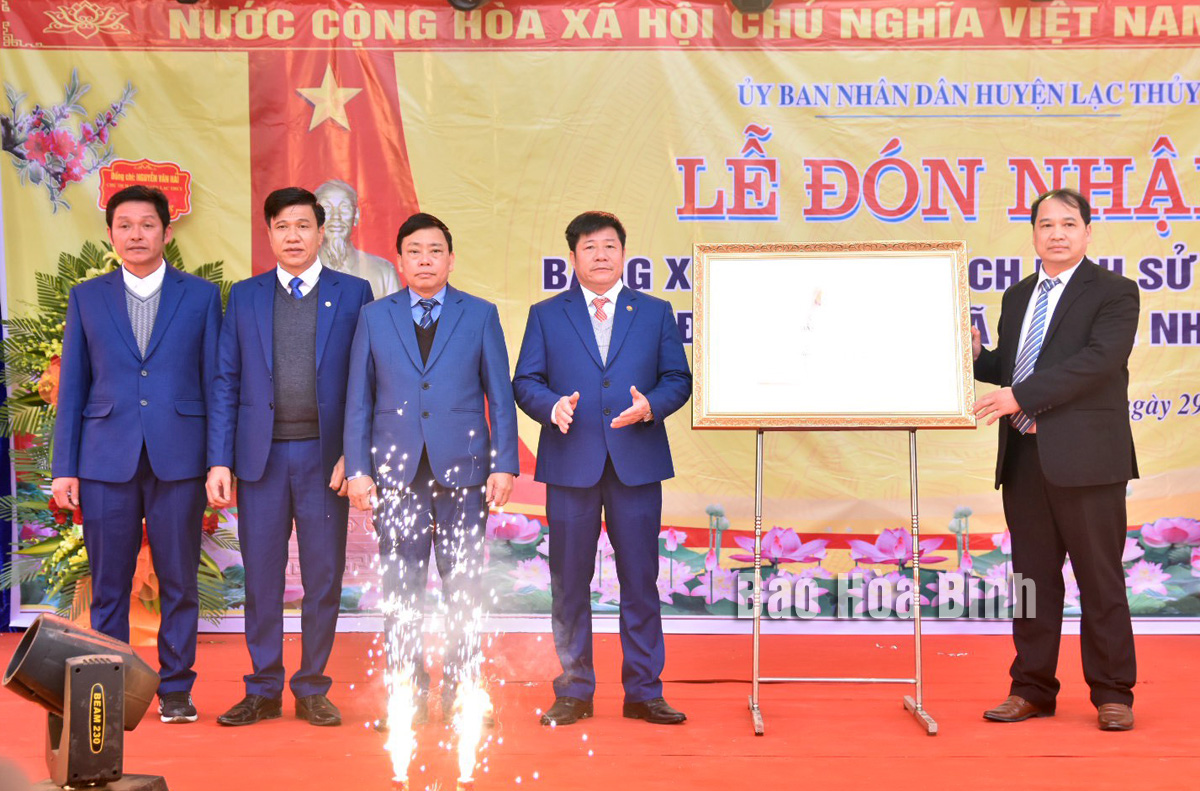
The People's Committee of Lac Thuy district on February 29 held a ceremony to receive a certificate recognising Co Lao Temple as a provincial historical relic. Within the framework of the ceremony, leaders of the Department of Culture, Sports and Tourism, Lac Thuy district, delegates, and locals offered incense at Co Lao temple.

Leaders
of the provincial Department of Culture, Sports and Tourism hand over the
certificate to Co Lao Temple, Thong Nhat commune, Lac Thuy district.
Co Lao Temple was built in Com village in Muong
Teo in the past, now Ninh Thanh village, Thong Nhat commune.
The temple was a place to worship deities who
protect the villagers in Hau Bong commune, Lac Thuy district, Ha Nam province.
It has contributed to meeting the spiritual needs of people in the ancient
Muong Teo region and neighbouring areas and preserving local cultural identity.
Besides religious elements, the temple also holds historical significance as it
honours and expresses gratitude to predecessors and famous figures who
contributed to the cause of national safeguarding and construction. Five
ordinances conferred by the Nguyen feudal dynasty to the deities are preserved at
the temple.
Every year, on January 6 - 7, a festival is held
at the temple. The festival is an occasion for people to remember origins and
remind young generations to do good deeds for a better life. During the
festival, villagers spend time together playing folk games, which help to
strengthen solidarity.
With its formation, development and historical,
cultural and tourist values, the Co Lao Temple relic was recognised as a
provincial historical relic in 2023.
Phong Phu commune, Tan Lac district of Hoa Binh province, is widely regarded as the cultural heartland of the Muong ethnic group. Among its many traditional communities, Luy Ai hamlet (formerly Ai hamlet) stands out as a rare location where the customs and way of life of the Muong Bi people remain largely intact.
The Truong Kha temple festival, a distinctive cultural event held every three years in Vu Ban township, Lac Son district, returned recently with vibrant rituals and folk traditions of the Muong people. Located next to the Buoi River in the Muong Trao fields, the Truong Kha Temple is dedicated to the three Kun Dol deities, revered for teaching farming techniques, irrigation, weaving, and protecting the harvest.
The demand for spaces serving community activities of residents in various areas across Hoa Binh city has been satisfied as local cultural houses now feature modern, spacious facilities thanks to the effective implementation of Resolution No. 49/NQ-HDND issued on December 28, 2021 by the city People's Council, which approved the plan for reorganising, converting, and allocating land for the construction, repair, and expansion of cultural houses in Hoa Binh’s villages and residential areas until 2025.
At the end of May, the Hoa Binh Provincial Ethnic Arts Troupe organized a series of performances for residents in Region 2 and Region 3 communes across the province. Bringing art to ethnic communities in remote, isolated, and especially disadvantaged areas has become a meaningful activity. These are not merely artistic performances but also journeys to disseminate cultural values, enrich spiritual life, and contribute to preserving the cultural identity of ethnic minorities.



